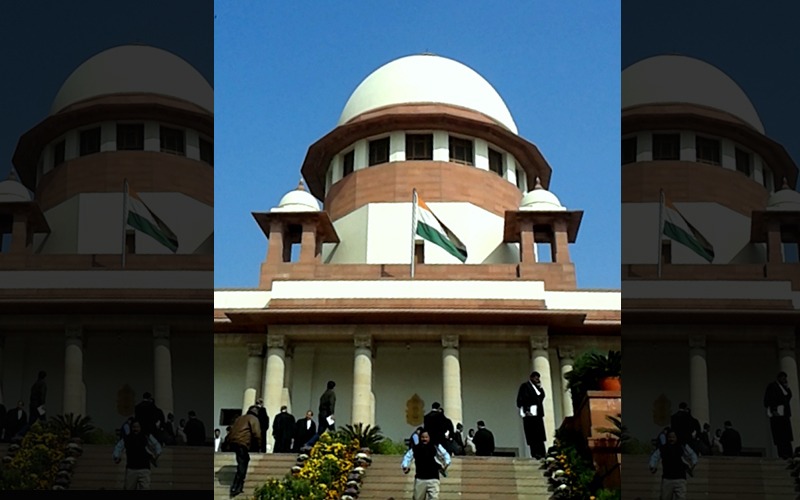 CAA
CAA
Supreme Court to hear pleas seeking stay on CAA implementation on Mar 19
New Delhi/UNI: The Supreme Court will hear the petition filed by the Indian Union Muslim League and others seeking a stay on the implementation of the Citizenship Amendment Rules 2024 on March 19.
A bench comprising Chief Justice of India Dr. D.Y. Chandrachud, Justice J.B. Pardiwala, and Justice Manoj Mishra directed that all the petitions filed on the CAA, along with the interim applications, be listed on Tuesday, March 19.
The CJI said, "There are diverse points. If a few lawyers can make submissions, So that no overlapping happens."
Senior Advocate Kapil Sibal, while mentioning the application before the bench, said that earlier in 2019, the court did not grant any stay to the Citizenship Amendment Act as there were no rules set by the government till then. But now that the government has notified us of the rules, the court should consider hearing us, Sibal urged.
"In 2019, the Court had said there were no rules, so no stay was granted. But now, right before the elections, they have notified the rules. Please hear them, at least on interim relief," Sibal urged.
Solicitor General Tushar Mehta clarified that the petitioners could not make submissions on whether citizenship could be granted or not.
The matter pertains to around 200 connected petitions being filed in the Supreme Court after the introduction of the Citizenship Amendment Act in 2019.
These petitions were taken up by the Supreme Court. Notices were issued in January 2020, but the matter could not be taken up for a hearing.
CAA, which was passed on December 12, 2019, amends Section 2 of the Citizenship Act of 1955, which defines “illegal migrants". Now, people belonging to Hindu, Sikh, Buddhist, Jain, Parsi, or Christian communities from the neighboring countries of Afghanistan, Bangladesh, or Pakistan shall not be treated as “illegal migrants” and shall be eligible to apply for citizenship under the 1955 Act.
The Indian Union of Muslim League (IUML) filed a petition in court on March 12 seeking a stay of the Citizenship (Amendment) Act (CAA), 2019 and its rules notified by the government on March 11, 2024.
The IUML urged that the CAA be notified four years after it was passed.
On March 11, the Home Ministry notified the implementation of the Citizenship Amendment Act's (CAA) rules.
The petitions filed in court against this Act seek a stay on the continued operation of the provisions of the Citizenship Amendment Act, 2019; and Citizenship Amendment Rules 2024, which would result in valuable rights being created and citizenship being granted to persons belonging to only certain religions, thereby resulting in a fait accompli situation.
The petitioners further seek a stay on the operation of Section 6B in the Citizenship Amendment Act, 2019, on the grant of citizenship to persons belonging to only certain religions.
The application for directions filed through Advocate Pallavi Pratap states that the CAA Rules, 2024, create a highly truncated and fast-tracked process for the grant of citizenship to persons covered under the exemption created by Section 2(1)(b) of the Citizenship Act, 1955, which is manifestly arbitrary and creates an unfair advantage in favor of a class of persons on the ground solely of their religious identity, which is impermissible under Articles 14 and 15.
The Supreme Court had earlier referred the petitions challenging the Citizenship (Amendment) Act, 2019 to a three-judge bench.
Support Our Journalism
We cannot do without you.. your contribution supports unbiased journalism
IBNS is not driven by any ism- not wokeism, not racism, not skewed secularism, not hyper right-wing or left liberal ideals, nor by any hardline religious beliefs or hyper nationalism. We want to serve you good old objective news, as they are. We do not judge or preach. We let people decide for themselves. We only try to present factual and well-sourced news.







